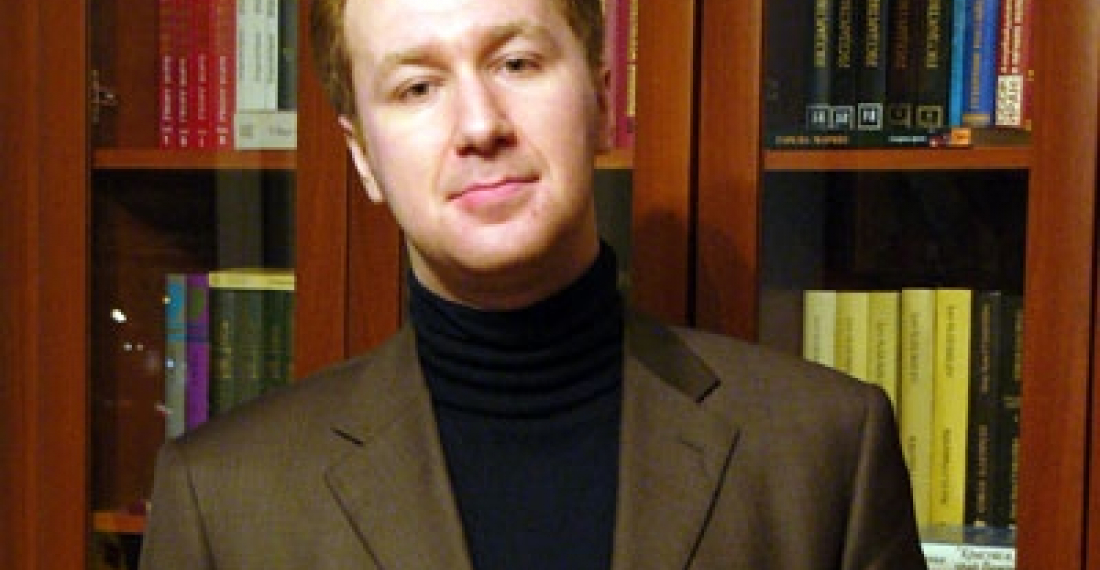ArmInfo's Interview with Vadim Mukhanov, senior researcher at the Center for Caucasus Studies of the Moscow State Institute of International Relations
Do you think certain changes will emerge in the Karabakh peace process after the presidential elections in Armenia and Azerbaijan regardless of the fact that the incumbent presidents will obviously gain the victories?
You know, I am quite skeptical about such expectations, especially as favorites in both races are the incumbent presidents, as you have mentioned. The elections will hardly bring any changes to the countries' policies. So, one can hardly expect any breakthrough ideas on the Nagorno-Karabakh problem from either Yerevan or Baku.
Most of the Armenian analysts are sure of the incumbent President Serzh Sargsyan's victory at the Feb 18 presidential election. What views does Moscow have about this election?
The incumbent president is really the favorite in the race, especially now that his strongest rivals, Levon Ter-Petrosyan and Gagik Tsarukyan, have refused to run for presidency. Only two candidates can rival with Sargsyan, the leader of Heritage Party Raffi Hovannisian and the leader of Liberty Party Hrant Bagratyan, while all the others will poll no more than 1% of the votes. Their motto is "it's not the winning, it's the taking part that counts".
Some analysts believe that the ruling Republican Party of Armenia is an advocate of European integration. What do you think of Armenia's prospects of participation in European integration projects and Moscow's projects on integration in the post-Soviet territory?
It is only one of the expert opinions I know. Others say that the Armenian authorities are conducting a multi-vector foreign policy aimed at developing relations with both the European Union and Russia. Armenia is talking about Europe but is a member of the Collective Security Treaty Organization and a strategic partner of Russia. Russia is crucial for Armenia's security and social-economic development - something the country should remember when building its other relations. In this light, I believe that Armenia's foreign policy will hardly change it in the near future, especially now that Europe is experiencing serious social-economic problems. There is also Turkey, a factor that must not be underestimated.
Is Armenia's Association Agreement with the European Union contrary to the country's possible membership to the Customs and Eurasian unions?
It is hard to compare things that are just being prepared or discussed. Preparations may sometimes last a way too long, while discussions may bring to quite unexpected conclusions. Sometimes we can even see a document first signed and then not ratified - something we witnessed quite recently. So, you better wait for something to happen and only then start comparing. I cannot say anything specific about the Eurasian Union, but I doubt that Armenia will revise any of its agreements with Russia. Armenia is not interested in changing the existing format. The Association Agreement will benefit Armenia, especially as it is not contrary to the country's agreements with Russia. Russia is still the key source of cash and the key investor for Armenia, and there is nothing saying that these things may change. Today Europe cannot afford privileges, so, we can hardly expect it to consider any investments in your economy for the time being.
The Armenian and Azeri foreign minister will meet in Paris on Jan 28. The OSCE Minsk Group co-chairs are supposed to offer new ideas to Nalbandian and Mammadyarov. What do you think the matter may concern?
One can hardly expect any changes from the forthcoming meeting of the Armenian and Azeri foreign ministers in Paris for as long as there is zero confidence between the parties to the Nagorno-Karabakh conflict. So, we better not make guesses and just wait for the things to happen. There have been so many frustrated hopes and negative emotions so far that we can hardly expect any positive things to happen soon.
It is obvious that the EU, the USA and Russia may jointly influence not only the Karabakh conflict but also other developments in the Caucasus. Do you agree with this?
If the world's great powers consolidate their positions on the Nagorno-Karabakh problem, they may achieve a result, but there are serious contradictions that are preventing them from acting as a team in conflicting zones. The existing negotiating formats, particularly, the OSCE Minsk Group, must be enlarged. You must resume meetings on a top level and you can do it not only in Paris or Moscow but in many other political centers of the world. The Russian-French-American mediation must be regular. Only then will it be able to have an influence - or, if you will, put pressure - on the parties to the Nagorno-Karabakh conflict. The conflicting parties must stop blaming the mediators and must start showing initiative.
Do you think the final agreement on Karabakh peace process may be signed without taking into account the opinions of Iran and Turkey? What is their role in maintaining the status quo?
As regards the positions of Iran and Turkey, they are big regional players and do have an influence on the Caucasus in general and on the conflict zone in particular. I think today neither Turkey nor Iran want the conflict to be resumed, so, they will seek to maintain the status quo.
by David Stepanyan






